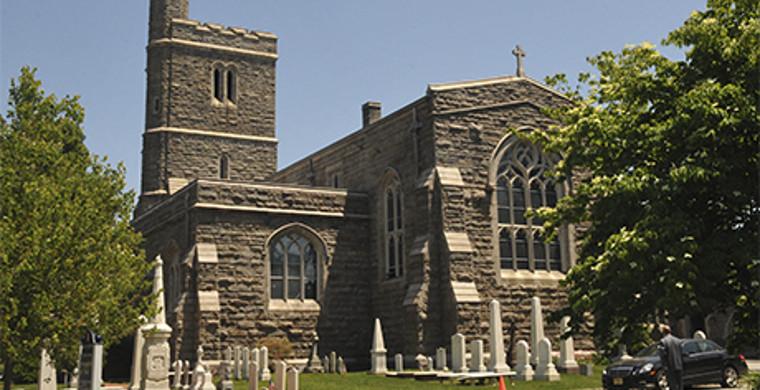US county's support for historic church buildings banned by New Jersey Supreme Court
St Peter's Episcopal Church, built between 1887 and 1911 to a design by McKim Mead and White, is one of a number of churches in Morris County who are no longer eligible for civic grant-aid after the New Jersey Supreme Court ruled it was unconstitutional.
ACNS News
April 19, 2018
Grants for the historic preservation of church buildings by Morris County, near New York City, have been ruled unconstitutional by the New Jersey Supreme Court. Between 2012 and 2015, a dozen churches received $4.6 million USD (approximately £3.2 million GBP), according to the Morristown Green news website. The churches, which include St Peter's Episcopal Church and the Episcopal Church of the Redeemer, will not have to pay the money back; but they will no longer be eligible to receive grants available to other historic buildings. The decision is being reviewed by the Morris County legal team, who say it contradicts a recent opinion from the US Supreme Court.
The case against Morris County was bought the secularist campaign group Freedom from Religion Foundation and local taxpayer David Steketee. They argued that the payments were in direct contradiction of the New Jersey Constitution which states that nobody shall "be obliged to pay tithes, taxes, or other rates for building or repairing any church or churches, place or places of worship, or for the maintenance of any minister or ministry, contrary to what he believes to be right."
In the 62-page judgment, Chief Justice Stuart Rabner said that "The plain language of the Religious Aid Clause bars the use of taxpayer funds to repair and restore churches, and Morris County's program ran afoul of that long-standing provision."
In a statement, the co-president of the Freedom from Religion Foundation, Annie Laurie Gaylor, said: "it's shocking that it took a trip to the New Jersey Supreme Court to enforce such a plain constitutional command. New Jersey taxpayers can breathe a sigh of relief that their constitutional religious liberty rights have been protected."
The Morris County officials expressed disappointment with the ruling. "In Morris County, as in all counties in New Jersey and across the nation, churches and other religious buildings are a vital part of the historic fabric of where we live, interwoven in the history of how our county, state and nation developed," Morris County Administrator John Bonanni said. "We believe historic churches are a strong component of that overall rich history, and we have considered churches -- only those eligible for the State or National Registers of Historic Places -- among historic sites that have been eligible for consideration by the county's historic preservation grant program."
The ruling appears to go against last year's ruling by the US Supreme Court which said that the Missouri Department of Natural Resources' express policy of denying grants to any applicant owned or controlled by a church, sect or other religious entity violated the rights of Trinity Lutheran Church under the free exercise clause of the First Amendment to the US Constitution, by denying the church an otherwise available public benefit on account of its religious status.
END














